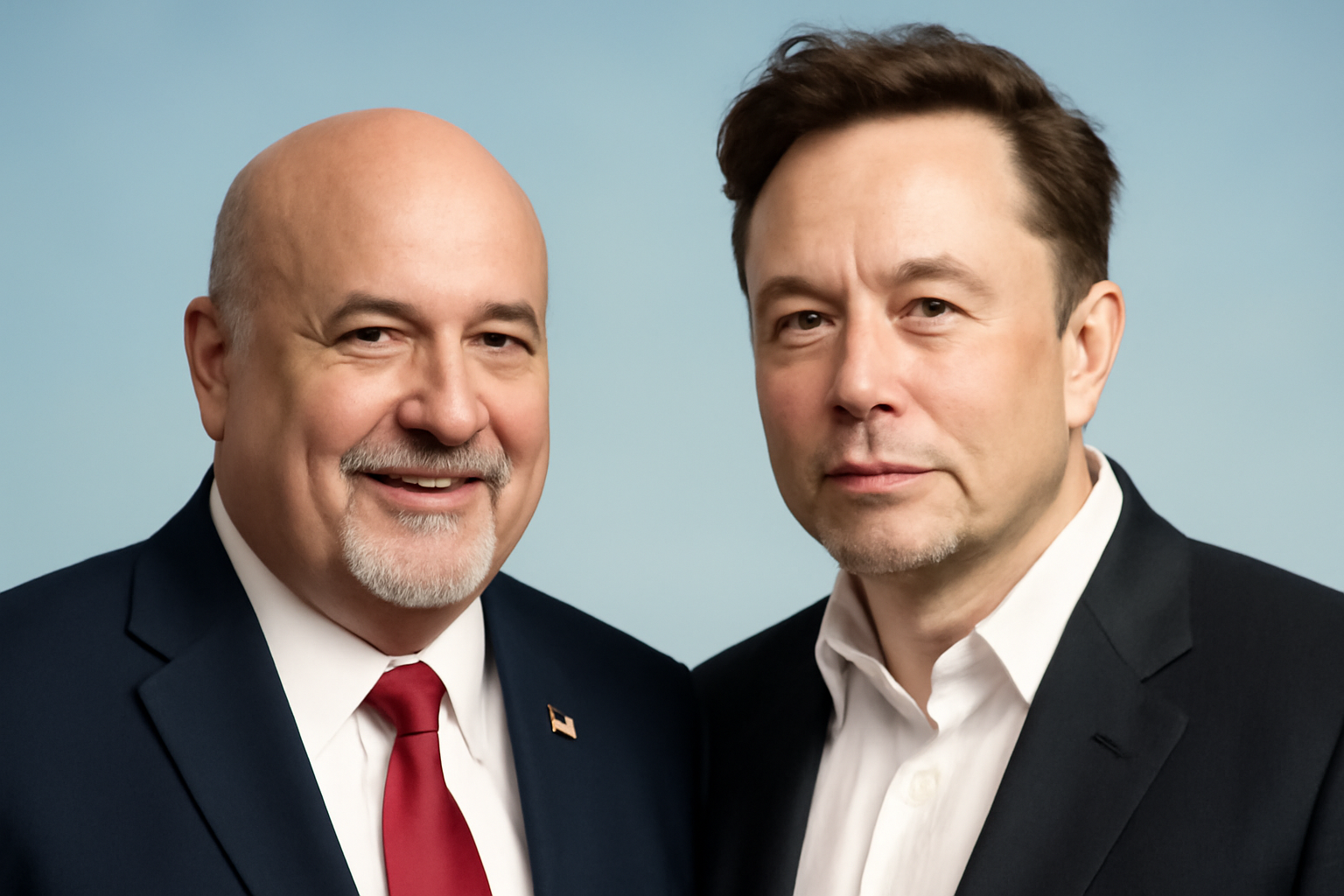
Out Representative Mark Pocan (D-WI) has introduced new legislation aimed at curbing Elon Musk's increasing influence over key government functions. The bill, humorously named the Eliminate Looting of Our Nation by Mitigating Unethical State Kleptocracy (ELON MUSK) Act, seeks to force Musk to choose between his companies' substantial government contracts and his role in the Trump administration.
Elon Musk, CEO of the social media platform X and SpaceX, which has secured an estimated $20 billion in U.S. government contracts, has been accused of overstepping his bounds by critics who say he is bypassing established legal frameworks to push through conservative policies that would otherwise stall in Congress.
Concerns Over Government Control
One notable system reportedly under Musk's control is the Treasury's payment system, a critical infrastructure that manages payments to government employees, distributes Social Security checks, refunds tax payments, and more. This has raised substantial concerns about the implications of a private individual exerting control over such a significant part of the government’s financial operations.
In addition to the Treasury, Musk has allegedly been using his influence to target USAID, the U.S. Agency for International Development, which manages humanitarian aid and critical programs such as HIV/AIDS prevention and treatment in developing countries. Musk claims backing from Trump to cut these programs, further fueling the controversy.
A Constitutional Crisis
This situation has been described by Sen. Chris Murphy (D-CT) as a constitutional crisis. Initially, Musk held no official government position but was leveraging his status as Trump’s major donor – having contributed over a quarter of a billion dollars to his campaign – to wield power. In a response to mounting criticism, the White House has since named Musk a "special government employee," a role that is unpaid and sidesteps many of the legal restrictions normally applicable to federal employees.
Notably, this designation allows Musk to avoid financial disclosure requirements, despite his unprecedented access to sensitive government operations, leading to concerns over potential conflicts of interest and self-enrichment.
The ELON MUSK Act
Rep. Pocan's ELON MUSK Act aims to address these issues by mandating that federal agencies terminate contracts with special government employees, aligning their obligations with those concerning elected officials and federal employees. "No one should be able to direct funds towards their personal interests if they are working for the federal government," Pocan stated. "We prohibit Members of Congress and many other federal employees from receiving federal contracts. The same should apply even more stringently to a special government employee with broad authority over federal spending."
He emphasized that government employees, regardless of their status, should not have any financial interests in government business dealings. Musk's extensive federal contracts, over $20 billion worth, make it difficult for him to remain impartial, Pocan argued, stressing the importance of protecting taxpayers' interests as a top priority.
Substantial Wealth and Influence
Pocan's office points out that Musk's net worth has surged by $154 billion since Election Day 2024, and he has access to personal data of millions of Americans, such as Social Security numbers and banking information from the Treasury system. While known SpaceX contracts total $20 billion, additional undisclosed contracts through its subsidiary, Starlink, further complicate financial transparency.
Pocan has taken to social media to voice his frustrations, accusing Musk of exploiting taxpayer dollars for personal gain. "I'm taking action by introducing the ELON MUSK Act to prevent grifters like him from getting richer while pillaging our tax dollars," he asserted.
Meanwhile, Senators Elizabeth Warren (D-MA) and Ron Wyden (D-OR) have requested an investigation into Treasury Secretary Scott Bessent’s role in granting Musk access to the Treasury's systems. Additionally, an attempt by House Democrats to subpoena Musk for questioning was narrowly defeated, drawing criticism from Rep. Ro Khanna (D-CA) for the lack of notice before the vote.
Reflecting the current political landscape, Pocan's bill faces a challenging path to becoming law, with Republicans controlling both houses of Congress and President Trump unlikely to sign the legislation. However, the introduction of the bill marks a significant step in ongoing efforts to scrutinize and regulate the influence of powerful private individuals on public governance.
Related Posts
Triumphant Trans Woman Wins Legal Battle and Inspires Others to Stand Up for Their Rights
Breaking new ground: a landmark victory in transgender rights After battling in courtrooms and enduring endless challenges, Diana Portillo, a transgender woman, has secured a monumental victory in her decade-long fight against workplace discrimination. The result? Nearly $1 million awarded in a historic settlement. But this isn't just a win on paper—it represents a powerful precedent in combati [...]
Pride Month in Latin America: Protests and Demands for Equality
**Celebrating Pride and advocating LGBTQ+ rights in Latin America** Pride Month in Latin America was a lively mix where celebration met activism. Communities united, not just throwing a party but making a stand—demanding equality and pushing governments toward better protection and rights recognition. Throughout Latin America, pride events erupted in marches and cultural displays, each with a c [...]
Transgender Erasure Actions Implemented by National Park Service
```html Trump administration's impact on national park service and transgender recognition The Trump administration made notable moves in undermining transgender representation, which included directing agencies like National Park Service not include "T" and "Q" when they refered “LGBTQ” in any official communication. This move seems part a broader plan by this administration aimed at reducin [...]